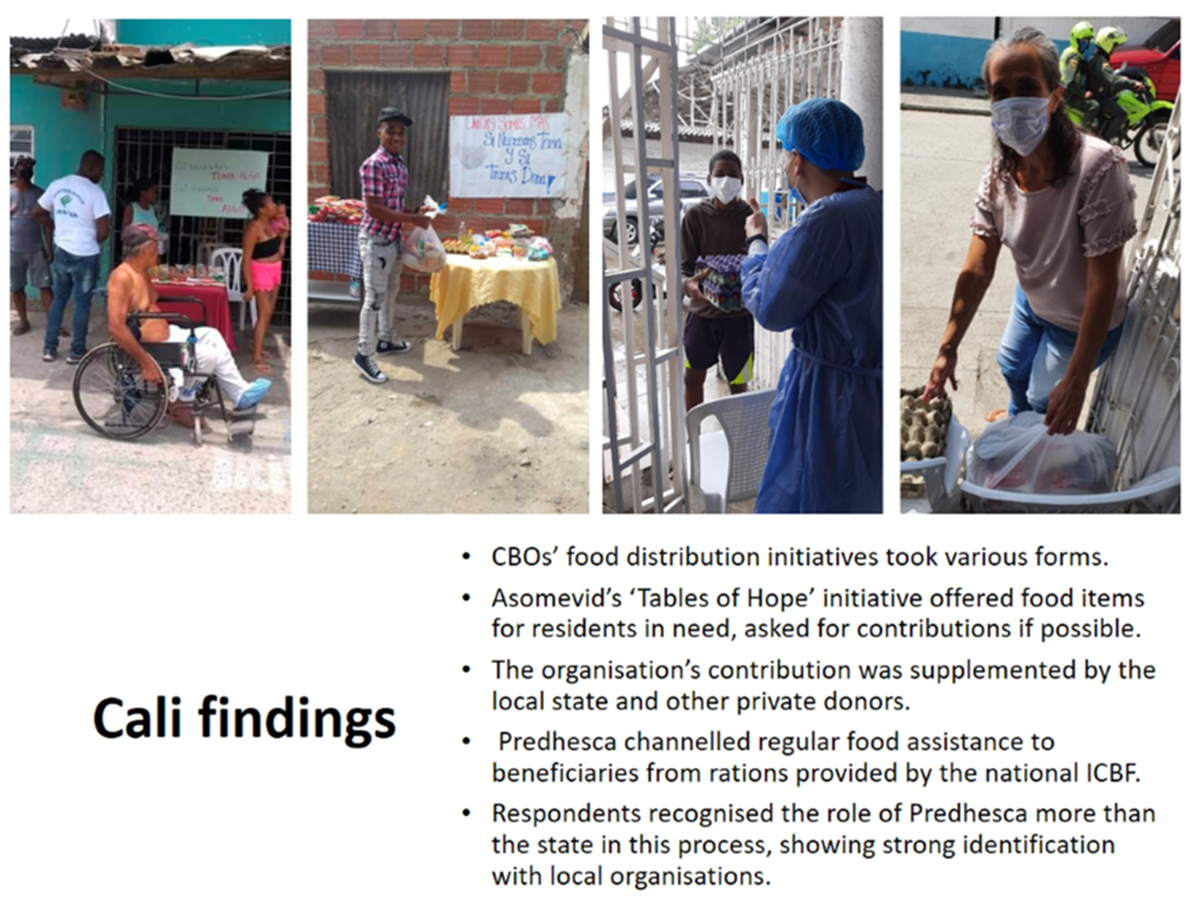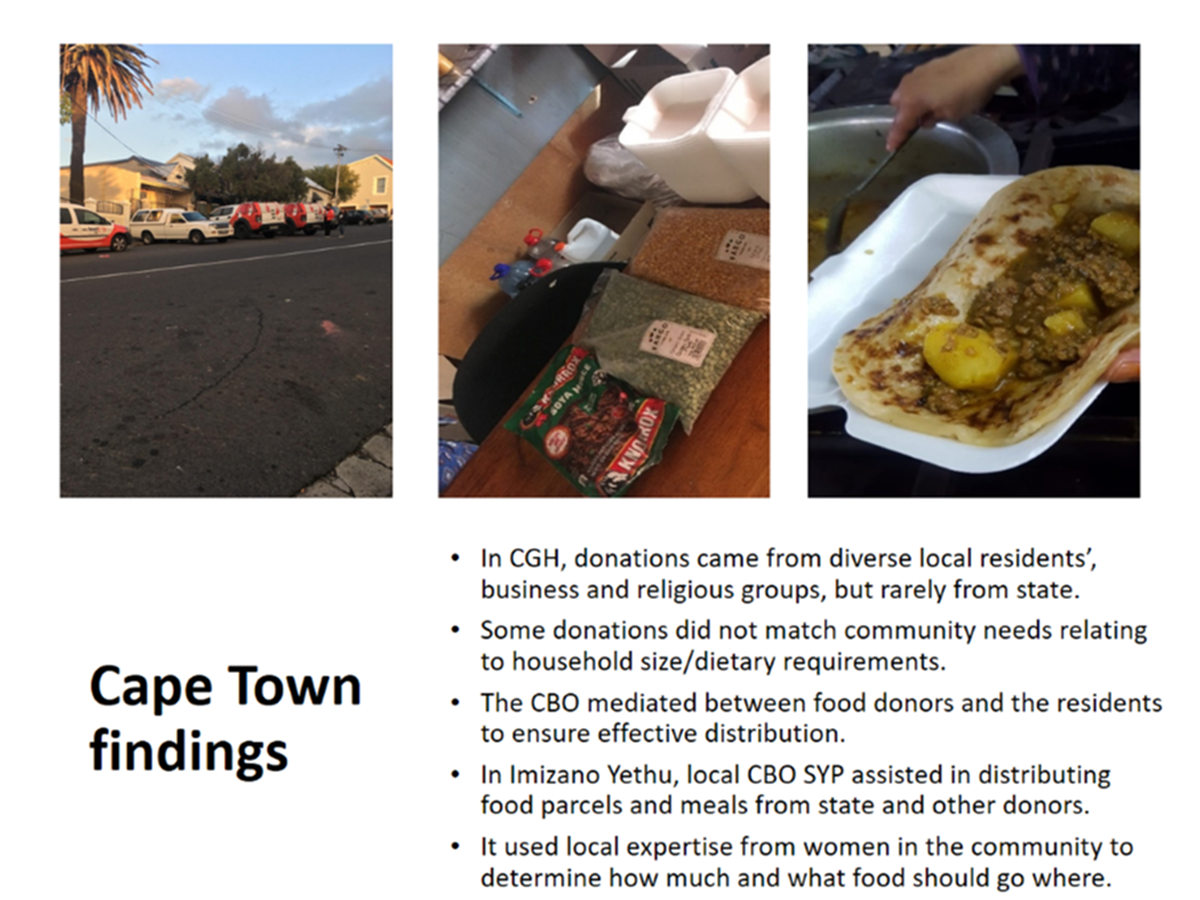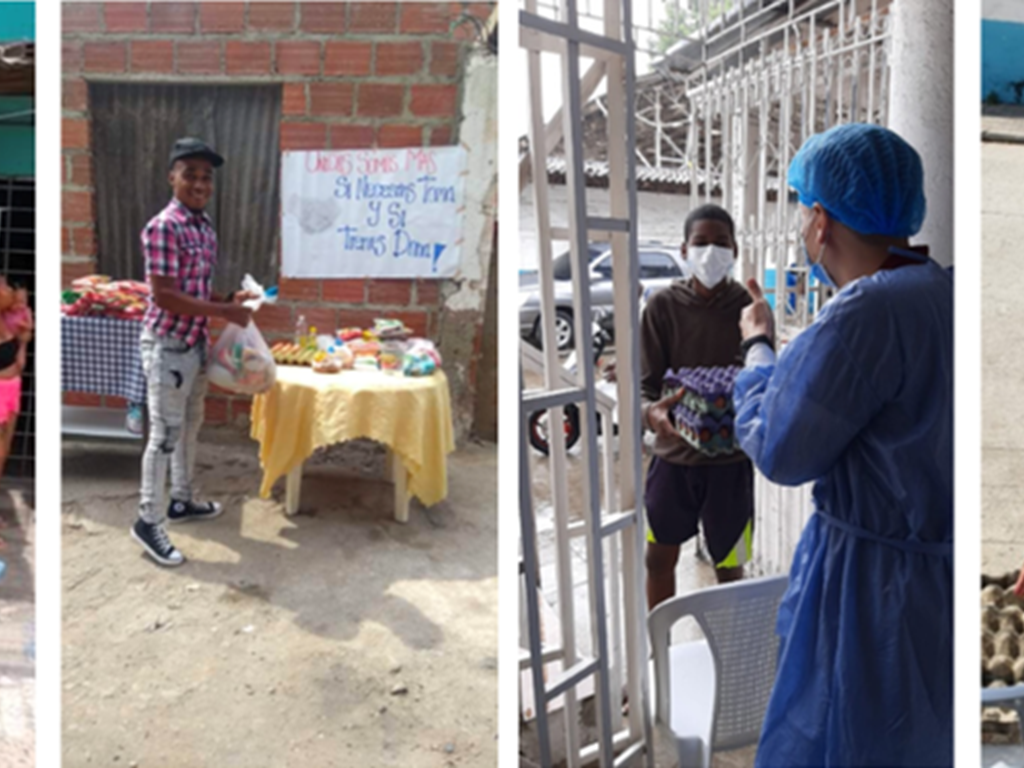This research focuses on pandemic responses by community-based organisations in low-income, marginalised neighbourhoods in Colombia and South Africa.
Faced with the asymmetrical distribution of Covid’s effects in cities, low-income communities have a critical role in building local resilience. Globally, both pandemic and control measures severely affected residents’ ability to meet basic needs, particularly relating to food, services (e.g. health, education and childcare), and access to reliable information. Community-based organisations played a decisive role in pandemic response in many low-income neighbourhoods, mitigating vulnerabilities by responding to gaps in basic needs provisioning.
This project explores community-based organisations’ pandemic responses in two highly unequal cities: Cali in Colombia, and Cape Town in South Africa.

Social infrastructure study findings in Cali, Colombia

Social infrastructure study findings in Cape Town, South Africa
We gathered qualitative data through interviews with leaders and staff in five organisations, and conducted focus groups with members or beneficiaries of the organisations and residents in the neighbourhoods they work. We also conducted research through WhatsApp diaries with neighbourhood residents, asking them about their experiences before, during and after the pandemic.
Key findings from the project showed:
- Community-based organisations were central to supporting vulnerable residents during the early days of Covid-19 and its associated lockdowns, suggesting they are well placed to act as ‘first responders’ for residents’ basic needs at times of crisis, particularly in hard to reach neighbourhoods.
- This is due to their embeddedness in specific places over time, and consequent detailed knowledge of the spatial and social needs in neighbourhoods.
- In areas such as food security, they have the potential to play a mediating and negotiating role with respect to local governance actors, including local authorities, business and civil society representatives.
- However, the effectiveness of their role depends on the openness of these actors, and particularly local authorities, to support and engage with them.
